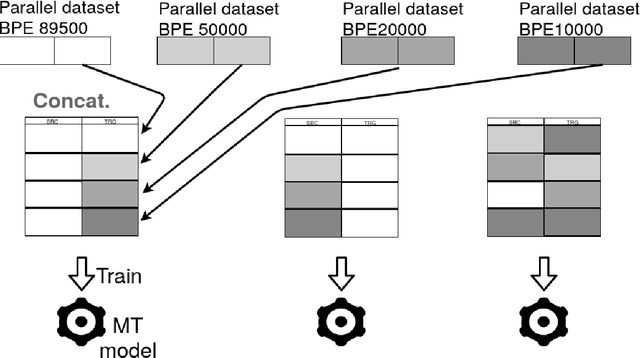Using Multiple Subwords to Improve English-Esperanto Automated Literary Translation Quality
Paper and Code
Nov 28, 2020



Building Machine Translation (MT) systems for low-resource languages remains challenging. For many language pairs, parallel data are not widely available, and in such cases MT models do not achieve results comparable to those seen with high-resource languages. When data are scarce, it is of paramount importance to make optimal use of the limited material available. To that end, in this paper we propose employing the same parallel sentences multiple times, only changing the way the words are split each time. For this purpose we use several Byte Pair Encoding models, with various merge operations used in their configuration. In our experiments, we use this technique to expand the available data and improve an MT system involving a low-resource language pair, namely English-Esperanto. As an additional contribution, we made available a set of English-Esperanto parallel data in the literary domain.
 Add to Chrome
Add to Chrome Add to Firefox
Add to Firefox Add to Edge
Add to Edge